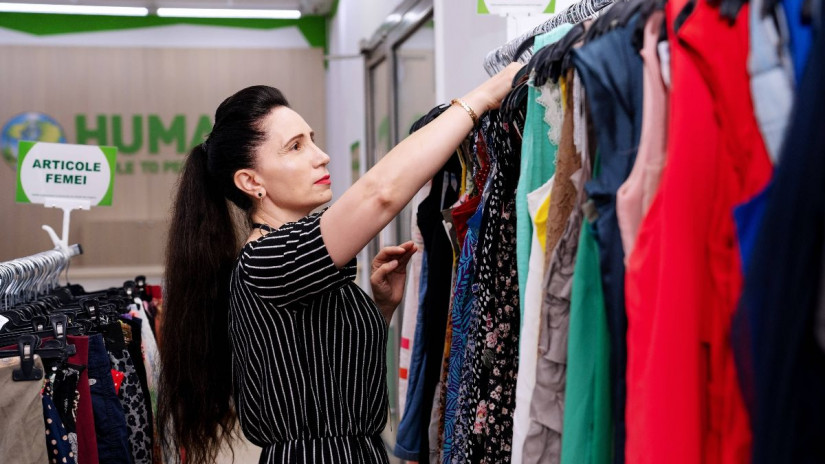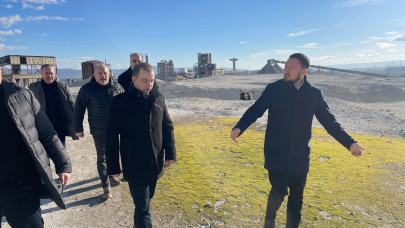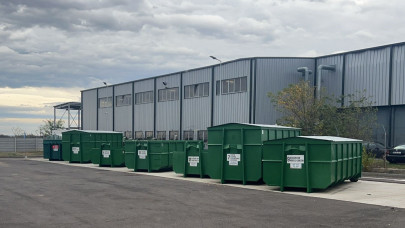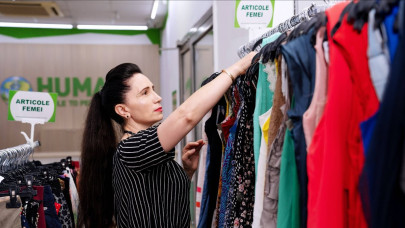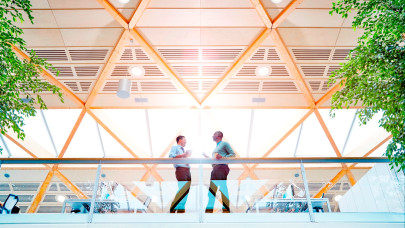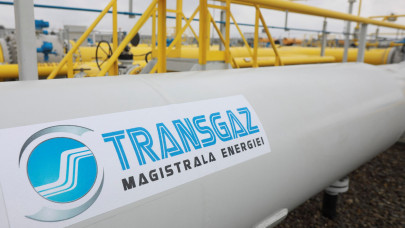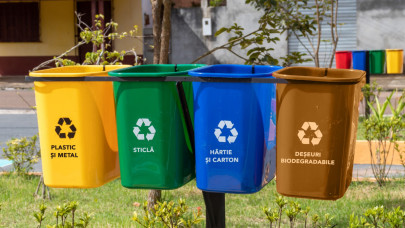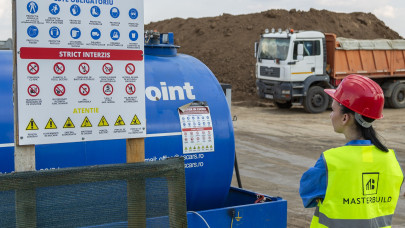According to Earth.org statistics, in just 15 years, the production of clothes has doubled, and the lifetime of a product has decreased by 40%. Consumers buy more and more new clothes, but wear them for a short period of time, if at all.
According to figures provided by the European Parliament in 2017, the production of new textile materials requires an enormous annual water consumption of 93 billion m³, which would be enough for the domestic needs of more than 1.7 billion people. Just the production of a single t-shirt requires 2700 litres of water, which a man would live on for 2 and a half years.
Also, according to a 2019 World Bank report, this industry is responsible for 10% of the planet's greenhouse gas emissions, more than the aviation and shipping industries combined. If the upward trend continues, the carbon emissions generated by the fashion industry will reach 26% by 2050.
About 60% of the materials used in the production of clothes are plastic-based and require about 48 million tons of oil per year. Also according to statistics, by washing clothes made of synthetic material, we generate 35% of the total microplastics spread in the environment, over 14 million tons of microplastics ending up in the planet's oceans.
Last but not least, more than 180 hazardous chemicals are used in this sector, and 16.5% of all pesticides in the world are used in cotton production alone.
"To reduce the climate crisis, it is necessary to dramatically reduce the global demand for new clothes. It is especially important to encourage consumers to choose clothes that have been worn before and not always opt for new products. The clothes available in sustainable fashion stores, such as the Humana stores, have been carefully collected and sorted, so that people can be sure that they are purchasing and wearing quality products, which they can buy at very convenient prices", says Rodica Bulăceanu, the representative of Humana People to People, an organization that gets involved in sorting and putting textile products back into the commercial circuit that can be reused, thus reducing the negative impact on the environment.
The increase in textile waste is caused by the fact that nowadays we buy more and more new clothes and wear them to few times until we throw them away and they become waste.
"Clothes are perceived more and more as fast consumption goods. The amount of clothing bought increases every year and on average consumers end up throwing it away after only 7 uses.
According to Earth.Org, it is estimated that 92 million tons of clothing and footwear are thrown away annually, but only 15% of them end up in a professional sorting circuit for reuse or recycling. Of the 14 million tons of clothes that still end up being collected, between 65-75% are suitable for reuse, and the rest of the textiles can be recycled and adapted for other purposes.
In 2022 alone, Humana People to People members in Europe and the United States managed to collect 127,000 tons of clothes, which they re-introduced into the commercial circuit as quality second-hand products, including in stores Humana from Romania. Thus, they no longer ended up as textile waste and we prevented the emission of 770,000 tons of CO2", declares Rodica Bulăceanu, Humana People to People representative
Clothes can get a new life if we collect them responsibly and they end up in professional sorting factories and are then reintroduced into the commercial circuit through specialized stores.
This whole process has a positive impact on the environment because it reduces the amount of textile waste, conserves natural resources that would be consumed by the production of new materials, lowers greenhouse carbon emissions from manufacturing and transportation processes, and saves millions of tons of meters water cubes.
"Humana People to People has been supporting the circular economy for decades, and is aligned with the European Green Deal, the European Union's directive to build a climate-neutral economy by 2050. Humana encourages the population to make sustainable decisions when purchasing textile products, to limit overconsumption and production of new clothes. We have been involved in Romania, for more than 15 years, in promoting and supporting sustainable fashion, through the 40 Humana stores, offering modern and very good quality second-hand clothes and accessories, which thus end up having a new duration of life. We can have a wardrobe made up of quality items that we can use for as long as possible, and that we can purchase, at low prices, from chains of second-hand stores, such as Humana, across the country. We offer an affordable option for everyone, as well as a responsible attitude towards the environment. This is a crucial step towards a more sustainable future. We have created a complex system through which we collect textile products from different sources, sort them in our factories, and re-introduce them into the commercial system through the more than 40 stores in Romania, thus extending their lifespan. By offering high-quality second-hand clothes at affordable prices, we promote a circular economy and limit the over-consumption and production of new clothes. We believe that sustainable fashion should be accessible to everyone. Moreover, through our activity, we generate over 300 green jobs in Romania, and the resulting profit is used to support humanitarian projects in less developed countries", says Rodica Bulăceanu, Humana People to People representative.
Humana People to People is a network of 29 member organizations with headquarters in Europe, the USA, Africa, Asia, and Latin America. They are involved in projects for the development of poor communities in disadvantaged countries, protecting the environment, and carrying out projects in the field of education and health.
Humana member organizations fund these projects by collecting, sorting, and re-introducing textile products into the commercial circuit, thereby reducing waste globally, lessening the harmful impact on the environment, and supporting global development.
Humana People to People SRL was established in Romania in 2006, with the aim of reintroducing used clothes into the commercial circuit. Humana collects and sorts the clothes in its specialized factories.

